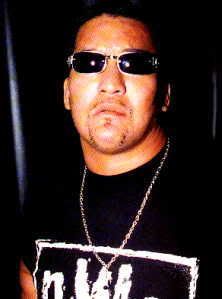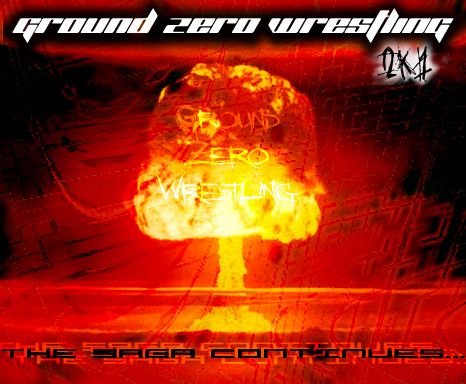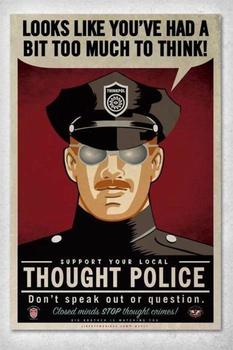Post by Icon Sincere on May 2, 2007 16:15:51 GMT -6
So, the results of Backlash are in, and I can't say I'm pleased. Rather than dwell on what went wrong, let's move on to how to do it right. Now, I am not the world's foremost authority on booking ( I leave that "honor to Tate), and I'm certain you guys would find tons of fault in what I did. But there are a few keystones that need discussing, and the biggest one is your biggest title. Allow me to provide this list.
1. Your biggest title belongs on the person who needs it most, and who it needs most.
This is the biggest rule. Consider RAW right now: John Cena doesn't need the title, nor does the title need John Cena. It's why you have multiple people "ready" for the belt at any time, or your main event lacks drama. But on top of that, you must occasionally change the title to keep it viable. This is what I mean when I say the title "needs" someone: when your champion is invincible, it ruins the title and turns it into a prop. I'm not saying Cena should have lost at Backlash, but he needs to lose soon, and someone needs to be groomed to take it. Otherwise, he becomes the next HHH '03, in that his victories produce groans rather than cheers or boos.
2. Your biggest title should belong to someone who has earned it.
This is why we love the Royal Rumble so much, and why the Royal Rumble winner is an instant main eventer: it's hard to argue with someone who wins a one-hour match containing basically the entire roster. Along those lines, though, it's also important that the person who makes his way up to challenger, then champion, deserves his spot. That was the biggest problem with JBL's title reign: it began before he was established as a main eventer. Hindsight has shown he grew into the spot, but he should've never been in a position where he had to grow into it. It's why someone like Gregory Helms isn't challenging for the gold, despite his cruiser title reign: he was never able to translate that into success against a lesser established wrestler -- so the champ would've brushed him aside easily.
3. Anyone in a match for your biggest title must attempt to win the title.
For God's sake, why did Umaga just sit back and let Vince win the title? Why did Shane do this? Why would anyone? The pinnacle of any wrestler's career is to hold the major title, and if someone does not try for the gold in a match where it is on the line, the belt loses luster. Everyone should see the biggest belt as the biggest belt; kayfabe demands it. So to sit back and let another man take the belt from under your nose means one of two things:
1. The belt is not worth the effort.
2. You're an idiot.
I'm not sure which category is worse. If it's the first, then you've undermined the value of the title; if it's the second, you've taken yourself out of "ready" status.
4. When a person wins your biggest title, he must beat the incumbent champion if at all possible.
A debilitating injury to the champion (such as Batista in January 2006) is unavoidabale and unfortunate, but should it be humanly possible, the title gains the most value if the winner *wins* it. Consider WrestleMania 22, for instance; how much bigger would Rey Mysterio's win have been if he defeated Kurt Angle one-on-one? Instead, Mysterio pinned Randy Orton -- one challenger pinned another, leaving Angle as a non-losing loser. The legitimacy of Mysterio's victory immediately comes into question as a result: is he really the best if he didn't defeat the man who was the best?
5. An inconclusive finish to a title match demands a rematch, as does a loss by the champion in which he keeps the title.
This seems obvious, but it needs to be said. I fully expect that Batista and Undertaker will go at it one more time at Judgment Day, since the most recent title match between the two ended in a draw. Otherwise, you have two people who can claim to be the champion (which, as you see with Rule 4, is a problem). Two men being equals can be accepted if they are fighting for pride, but holding the biggest title means you are alone at #1 -- which you can't be unless you win. The second half of this formula is that a winner wins, and the champion is your biggest winner. If he keeps losing non-title matches without consequence -- or if he keeps getting himself DQ'd or counted out -- he's halfway to being a paper champion. That's bad. Even Ric Flair, master of the DQ "defeat", still eventually won the final battle.
6. A conclusive and successful title defense by the champion ends the challenger's claim.
Amazingly, this rule has been ignored rather steadily on RAW (and, perhaps not coincidentally, has led to Cena's interminable reign). Consider that Shawn Michaels lost and lost decisively at WrestleMania 23. As a result, he should step aside and allow someone else to be the next challenger. Cena already proved himself better than Michaels (up until the non-title win in England, which re-opened the door -- see above). So right after WrestleMania, Michaels needed to re-prove himself and someone else had to step up. The problem, of course, was that no one else was left (only Great Khali had won from RAW at WrestleMania, and he lacks the "ready" factor). Which leads to:
7. At any moment, there should be multiple people who could conceivably hold your biggest title.
Consider Batista's injury that caused him to forfeit the World title. Ideally, there should have been no problem with this; there would be someone who could step up and run with the ball in his place. However, Mark Henry was not ready and was merely a placeholder challenger; Rey Mysterio hadn't reached credibility yet with the Rumble three weeks away; The Undertaker was AWOL; Randy Orton was coming off of a crushing defeat at the hands of the Undertaker; and no one else was close. This forced the WWE to move Kurt Angle to SmackDown, which devalued the entire brand (not that Vince seems to care about brand equality, but that's another rant). Most companies do not have the luxury of freely borrowing superstars like that; hence, having only one champion-worthy wrestler really is treading on thin ice.
8. A title change should be without controversy.
Yes, I understand that heels cheat, and that's what makes them heels. But if someone wins the title in such a way that objectively would not be allowed, then they are not the #1 wrestler. JBL may not have been ready for the gold when he won, but he did win it: he achieved the objective of the match before Eddie Guerrero did, and he did so without the aid of anyone else. Contrast with King Booker's title reign, which began due to Chavo Guerrero's heel turn. Not only does Booker look like a paper champion in that he did not beat the previous titleholder on his own, but his victory was overshadowed, which devalued the win (and in turn the belt). Along those lines:
9. When someone becomes the new holder of your biggest title, it should be headline news.
What could possibly be bigger than winning the gold? When a new President is elected or new Prime Minister sworn in, it is the news of the day. While I'd be foolish to claim wrestling as on par with world events, a title change is the equivalent of a new political administration gaining power -- it is a landmark event in the history of the company. These events don't happen all the time (and if they do, you have bigger problems than this list can help you with). It's the man biting the dog when the title switches; to have something more monumental happen on the same show (WWE's multiple top titles providing an exception) is a grave error.
10. Transition champions should be kept to a minimum, if used at all.
Consider a sports franchise's search for a head coach. If they do appoint an "interim" coach, it's the same as naming a transition champion; he is there only until a long-term solution can be found (and he himself might wind up being the long-term solution). It makes no sense to switch from one interim coach to another repeatedly -- the position demands stability. It's the same with your biggest title; the position demands stability. If the title changes hands too often -- even between the same two guys -- it loses value (see the old Hardcore title for this concept taken to its logical extreme). Further, an interim coach or transition champion receives no benefit from the honor -- an opportunity lost to make new stars.
*****
If you follow these ten rules on a consistent basis, the benefits will show immensely. Your champion will be a strong champion. The title will become the focus of the company and its stars. Multiple main eventers will be available in case of emergency, either injury or staleness. People will get excited over the title matches, because if they see the belt change hands they know they saw something big. Wrestlers will have their stock rise through a steady stream of wins before the title and a convincing reign with it. Combining all these aspects is the best way to get bang from your buck.
Of course, that's just my opinion; I could be wrong.
Elijah
1. Your biggest title belongs on the person who needs it most, and who it needs most.
This is the biggest rule. Consider RAW right now: John Cena doesn't need the title, nor does the title need John Cena. It's why you have multiple people "ready" for the belt at any time, or your main event lacks drama. But on top of that, you must occasionally change the title to keep it viable. This is what I mean when I say the title "needs" someone: when your champion is invincible, it ruins the title and turns it into a prop. I'm not saying Cena should have lost at Backlash, but he needs to lose soon, and someone needs to be groomed to take it. Otherwise, he becomes the next HHH '03, in that his victories produce groans rather than cheers or boos.
2. Your biggest title should belong to someone who has earned it.
This is why we love the Royal Rumble so much, and why the Royal Rumble winner is an instant main eventer: it's hard to argue with someone who wins a one-hour match containing basically the entire roster. Along those lines, though, it's also important that the person who makes his way up to challenger, then champion, deserves his spot. That was the biggest problem with JBL's title reign: it began before he was established as a main eventer. Hindsight has shown he grew into the spot, but he should've never been in a position where he had to grow into it. It's why someone like Gregory Helms isn't challenging for the gold, despite his cruiser title reign: he was never able to translate that into success against a lesser established wrestler -- so the champ would've brushed him aside easily.
3. Anyone in a match for your biggest title must attempt to win the title.
For God's sake, why did Umaga just sit back and let Vince win the title? Why did Shane do this? Why would anyone? The pinnacle of any wrestler's career is to hold the major title, and if someone does not try for the gold in a match where it is on the line, the belt loses luster. Everyone should see the biggest belt as the biggest belt; kayfabe demands it. So to sit back and let another man take the belt from under your nose means one of two things:
1. The belt is not worth the effort.
2. You're an idiot.
I'm not sure which category is worse. If it's the first, then you've undermined the value of the title; if it's the second, you've taken yourself out of "ready" status.
4. When a person wins your biggest title, he must beat the incumbent champion if at all possible.
A debilitating injury to the champion (such as Batista in January 2006) is unavoidabale and unfortunate, but should it be humanly possible, the title gains the most value if the winner *wins* it. Consider WrestleMania 22, for instance; how much bigger would Rey Mysterio's win have been if he defeated Kurt Angle one-on-one? Instead, Mysterio pinned Randy Orton -- one challenger pinned another, leaving Angle as a non-losing loser. The legitimacy of Mysterio's victory immediately comes into question as a result: is he really the best if he didn't defeat the man who was the best?
5. An inconclusive finish to a title match demands a rematch, as does a loss by the champion in which he keeps the title.
This seems obvious, but it needs to be said. I fully expect that Batista and Undertaker will go at it one more time at Judgment Day, since the most recent title match between the two ended in a draw. Otherwise, you have two people who can claim to be the champion (which, as you see with Rule 4, is a problem). Two men being equals can be accepted if they are fighting for pride, but holding the biggest title means you are alone at #1 -- which you can't be unless you win. The second half of this formula is that a winner wins, and the champion is your biggest winner. If he keeps losing non-title matches without consequence -- or if he keeps getting himself DQ'd or counted out -- he's halfway to being a paper champion. That's bad. Even Ric Flair, master of the DQ "defeat", still eventually won the final battle.
6. A conclusive and successful title defense by the champion ends the challenger's claim.
Amazingly, this rule has been ignored rather steadily on RAW (and, perhaps not coincidentally, has led to Cena's interminable reign). Consider that Shawn Michaels lost and lost decisively at WrestleMania 23. As a result, he should step aside and allow someone else to be the next challenger. Cena already proved himself better than Michaels (up until the non-title win in England, which re-opened the door -- see above). So right after WrestleMania, Michaels needed to re-prove himself and someone else had to step up. The problem, of course, was that no one else was left (only Great Khali had won from RAW at WrestleMania, and he lacks the "ready" factor). Which leads to:
7. At any moment, there should be multiple people who could conceivably hold your biggest title.
Consider Batista's injury that caused him to forfeit the World title. Ideally, there should have been no problem with this; there would be someone who could step up and run with the ball in his place. However, Mark Henry was not ready and was merely a placeholder challenger; Rey Mysterio hadn't reached credibility yet with the Rumble three weeks away; The Undertaker was AWOL; Randy Orton was coming off of a crushing defeat at the hands of the Undertaker; and no one else was close. This forced the WWE to move Kurt Angle to SmackDown, which devalued the entire brand (not that Vince seems to care about brand equality, but that's another rant). Most companies do not have the luxury of freely borrowing superstars like that; hence, having only one champion-worthy wrestler really is treading on thin ice.
8. A title change should be without controversy.
Yes, I understand that heels cheat, and that's what makes them heels. But if someone wins the title in such a way that objectively would not be allowed, then they are not the #1 wrestler. JBL may not have been ready for the gold when he won, but he did win it: he achieved the objective of the match before Eddie Guerrero did, and he did so without the aid of anyone else. Contrast with King Booker's title reign, which began due to Chavo Guerrero's heel turn. Not only does Booker look like a paper champion in that he did not beat the previous titleholder on his own, but his victory was overshadowed, which devalued the win (and in turn the belt). Along those lines:
9. When someone becomes the new holder of your biggest title, it should be headline news.
What could possibly be bigger than winning the gold? When a new President is elected or new Prime Minister sworn in, it is the news of the day. While I'd be foolish to claim wrestling as on par with world events, a title change is the equivalent of a new political administration gaining power -- it is a landmark event in the history of the company. These events don't happen all the time (and if they do, you have bigger problems than this list can help you with). It's the man biting the dog when the title switches; to have something more monumental happen on the same show (WWE's multiple top titles providing an exception) is a grave error.
10. Transition champions should be kept to a minimum, if used at all.
Consider a sports franchise's search for a head coach. If they do appoint an "interim" coach, it's the same as naming a transition champion; he is there only until a long-term solution can be found (and he himself might wind up being the long-term solution). It makes no sense to switch from one interim coach to another repeatedly -- the position demands stability. It's the same with your biggest title; the position demands stability. If the title changes hands too often -- even between the same two guys -- it loses value (see the old Hardcore title for this concept taken to its logical extreme). Further, an interim coach or transition champion receives no benefit from the honor -- an opportunity lost to make new stars.
*****
If you follow these ten rules on a consistent basis, the benefits will show immensely. Your champion will be a strong champion. The title will become the focus of the company and its stars. Multiple main eventers will be available in case of emergency, either injury or staleness. People will get excited over the title matches, because if they see the belt change hands they know they saw something big. Wrestlers will have their stock rise through a steady stream of wins before the title and a convincing reign with it. Combining all these aspects is the best way to get bang from your buck.
Of course, that's just my opinion; I could be wrong.
Elijah



 "Professor of psychological warfare and mastermind of mindgames!"-Alexander Hunt,color commentator
"Professor of psychological warfare and mastermind of mindgames!"-Alexander Hunt,color commentator











